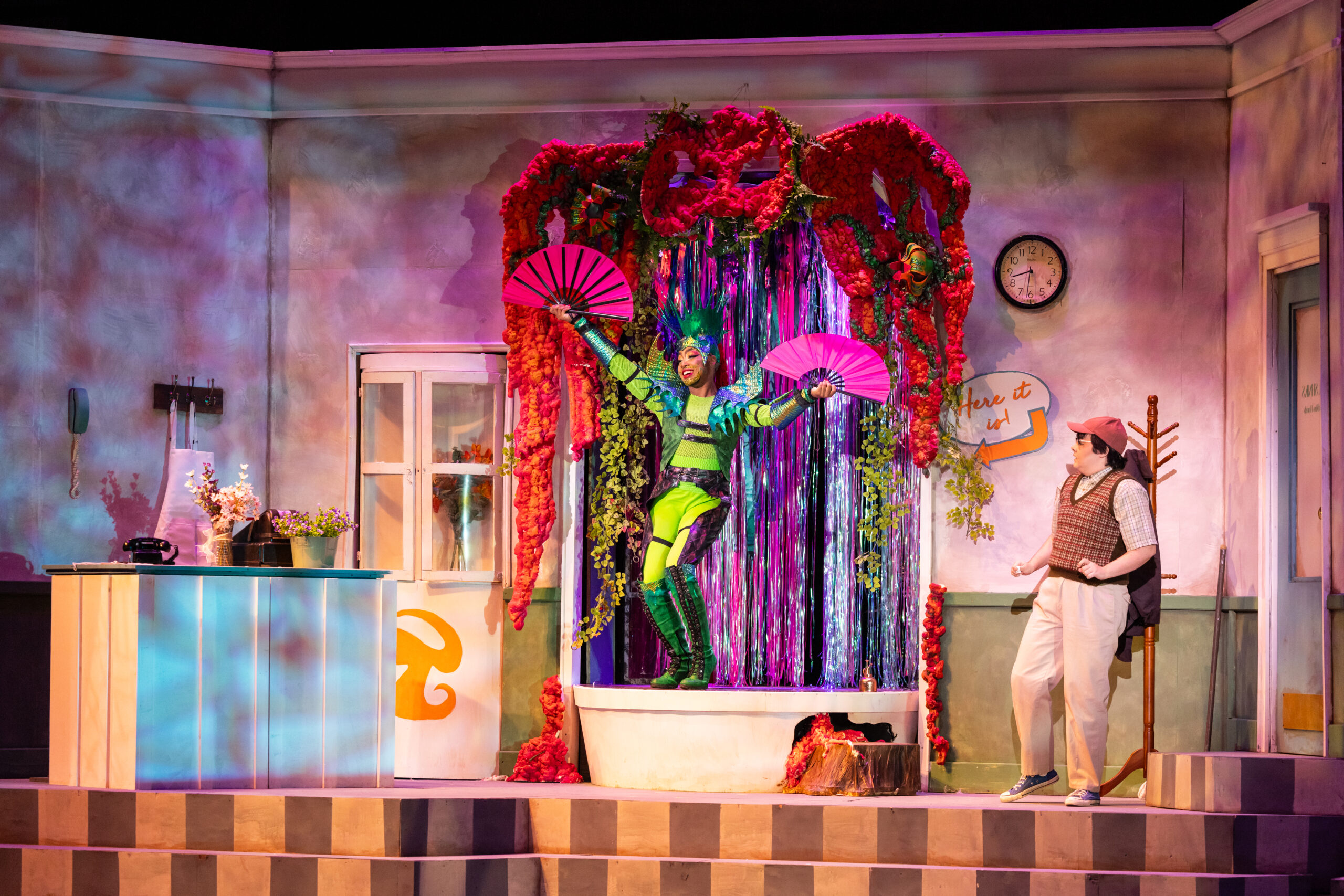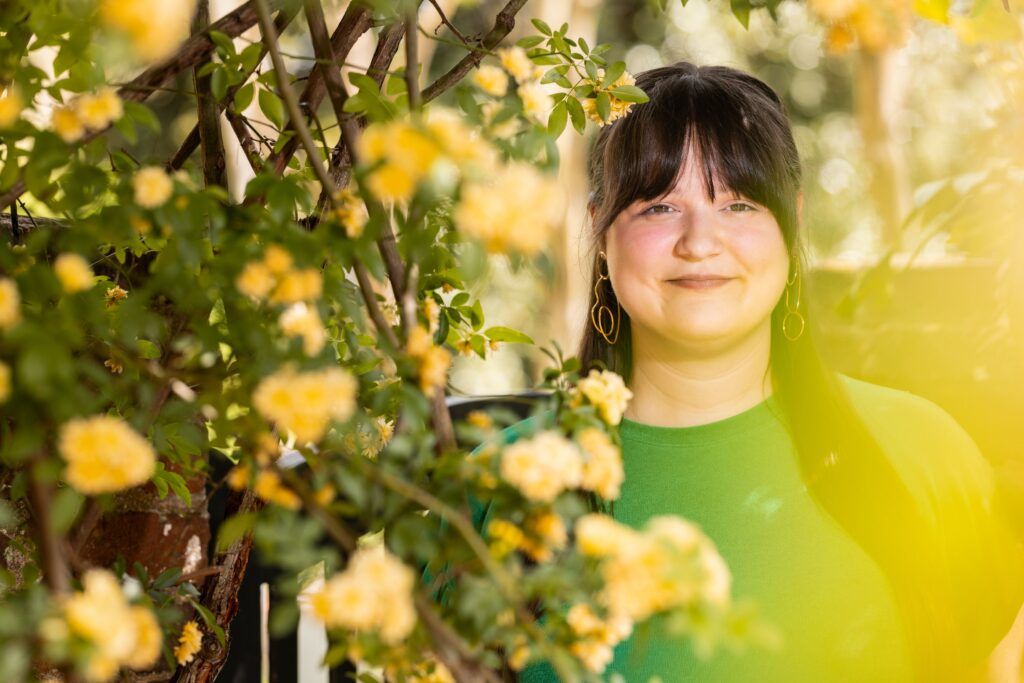
As a dramaturg, one of Sloan Elle Garner’s roles is to advocate for the playwright, even if that playwright has been dead for 400 years. “I believe every play was written to present the truth of the world as the playwright sees it,” she explained.
Garner, who is a Ph.D. student in the University of Georgia’s Theatre and Performance Studies, calls this the big “T” truth. She considers all of the artistic additions or changes made by directors, designers and actors to be little “t” truths that get layered on when a play is produced for a second, third or hundredth time.
“It’s key that we never lose the big ‘T’ because otherwise it’s a different play.” UGA established a home in a building called The Congressional, but it lacked the common area and modern classroom space to ensure students connected with each other and the learning experience.
Garner did the dramaturgy for the UGA Theatre Department’s production of “Little Shop of Horrors,” which opened on April 12. The original production of “Little Shop” premiered Off Off Broadway in 1982. Based on a 1960 black comedy movie of the same name, the musical theater version was written by Howard Ashman and Alan Menken. Despite many skeptics, the show was an almost instant success, selling out nightly before being moved to a bigger theater where the first run lasted five years. Since then, the musical has been produced numerous times and seen many iterations, including the 1986 film starring Steve Martin and Rick Moranis.
To keep Menken’s and Ashman’s original meaning intact, Garner worked with the director – Daniel B. Ellis – whenever he had questions about artistic choices. She performed extensive research then provided historical and cultural context for everyone involved in the production, including the students who create every UGA production from design concepts to the final curtain call.
Lighting, scenic and costume design
In a high-ceilinged workshop behind UGA’s Fine Arts Building, much of the initial creative work for any UGA production begins. Wood is being cut on long tables to create sets. Lighting design is being discussed. And on a small table in the technical director’s office sits a diorama for “Little Shop.” The intricately crafted miniature stage set was created by Cody Russell, who is earning his Master of Fine Arts in scenic design. Acting as head of scenic design for this production will serve as his senior thesis.
“I begin with initial draftings, and those become the blueprints to design the set,” he explained. “I also work on renderings (like the diorama) and paint elevations so I can show the director exactly what the set is supposed to look like and what colors we’re using.”
Russell was acting and set dressing at the Aurora Theater in Atlanta where he worked with Julie Ray, who is currently the head of UGA’s theatre department. She encouraged him to apply to UGA, and now he’s close to finishing his degree and reentering the theater industry with more experience.
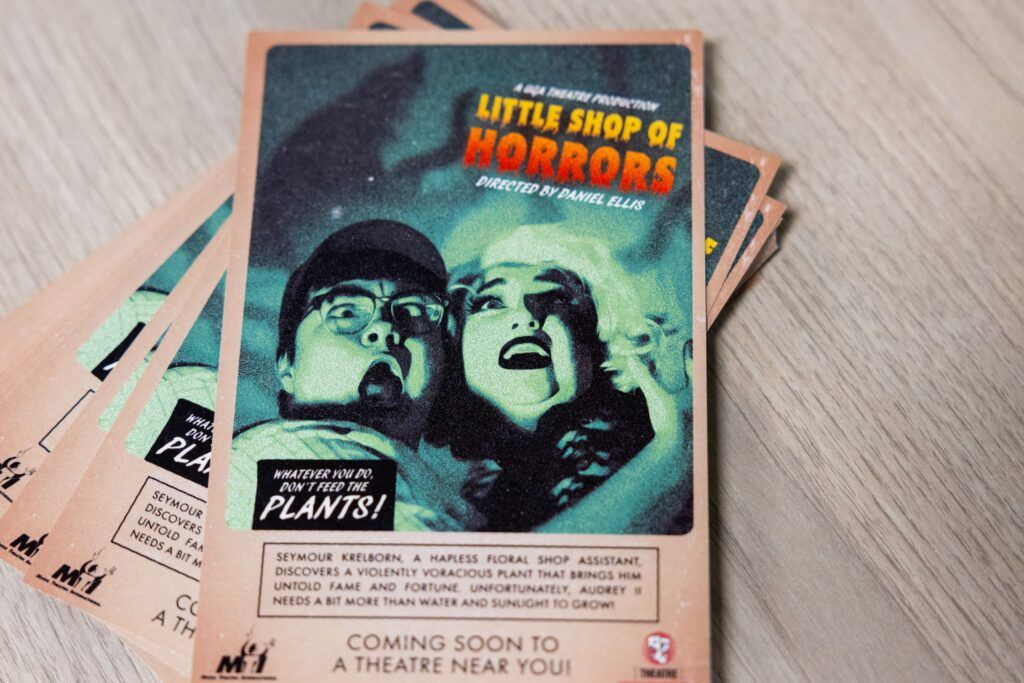
Working as head lighting designer for the upcoming show will serve as Jeremy Weng’s senior thesis.
An Army veteran from Virginia, Weng has worked off and on as a theater tech since he was 13 years old. He explained that before he even approaches the design aspect of his job, he first reads the play at least three times. “The first time is to familiarize yourself with it. On the second read you’re looking for themes and key emotions. And the third time I’m looking for specific moments I want to highlight.”
As with every aspect of preproduction, Weng doesn’t work alone. He and Russell both have teams of other MFA students, at least one faculty member, and undergraduates who come to help out in the scene shop as part of their coursework. “It’s key that we never lose the big ‘T’ because otherwise it’s a different play.” UGA established a home in a building called The Congressional, but it lacked the common area and modern classroom space to ensure students connected with each other and the learning experience.
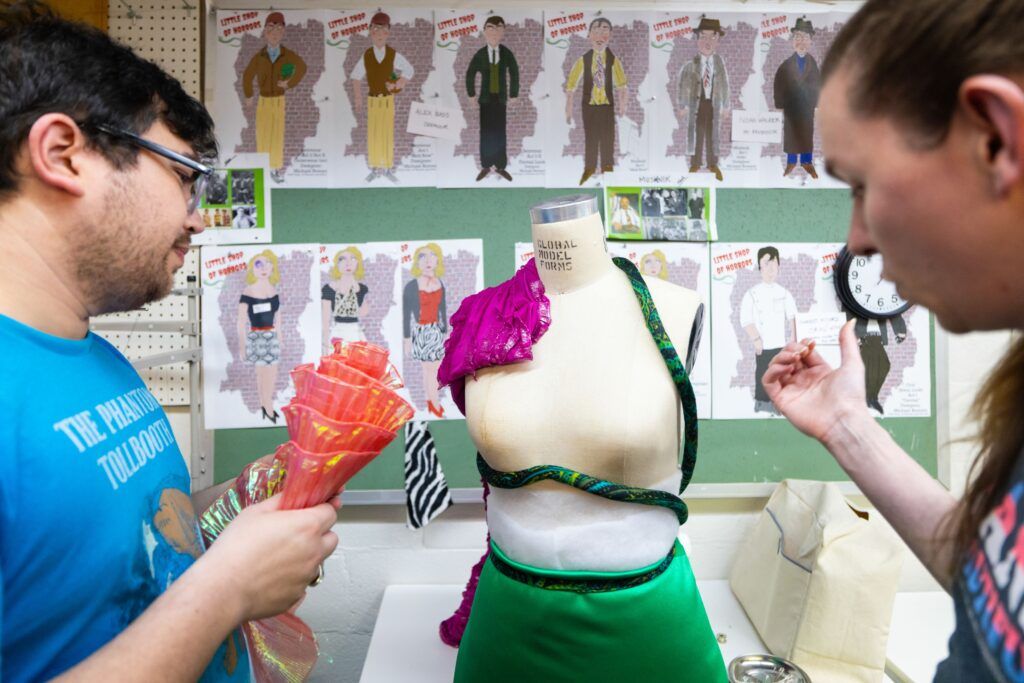

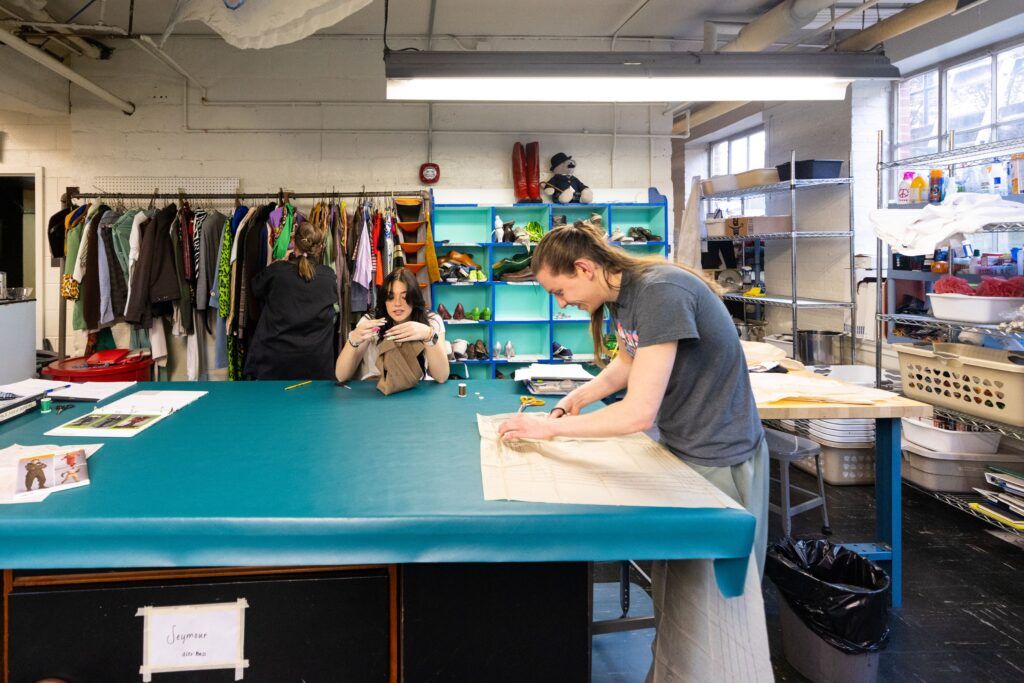
The show’s costume designer, Michael Romero, is wearing a handmade bolo tie decorated with a carved wooden head of Groucho Marx, a corduroy vest over his button-down shirt and a beret during a photo shoot for the play’s three lead actors.
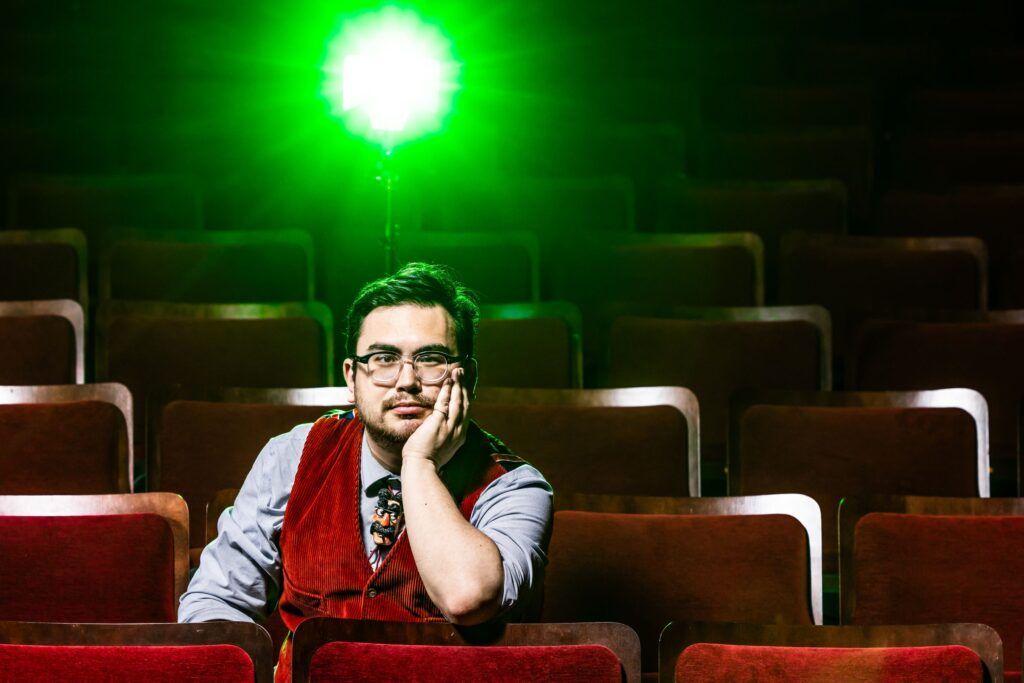
“Can you tell I’m a costume designer,” he joked, adjusting his tie. He explained that his outfits show people he has not just eclectic style but attention to detail, adding that he often gets pulled over at theater conventions because of how he dresses.
Romero is in his final year as an MFA student in theater design and technology with an emphasis on costume design, and this project will count as his senior thesis. At this point in the production process, he’s completed all of the designs, research and drawings and now he and his team are deciding what they’ll still need to buy, pull (from UGA’s costume shop) or construct. The project will count as his senior thesis.
While he has a lot of theater experience – including designing a whole team’s worth of soccer uniforms for “The Wolves” last year, and stitching for Opera Theatre St. Louis – this is the first musical he’s designed costumes for. “There are bigger, flashier moments in musicals,” he explained. “And you need to think about what people can see from the back of the theater.”
His favorite part of any production is working with the actors and creating characters together. “I was getting Brie (the actor playing Audrey) into costume today, and when she put on her bangles, something clicked. The actor disappeared and the character appeared. It’s like a magic trick.”
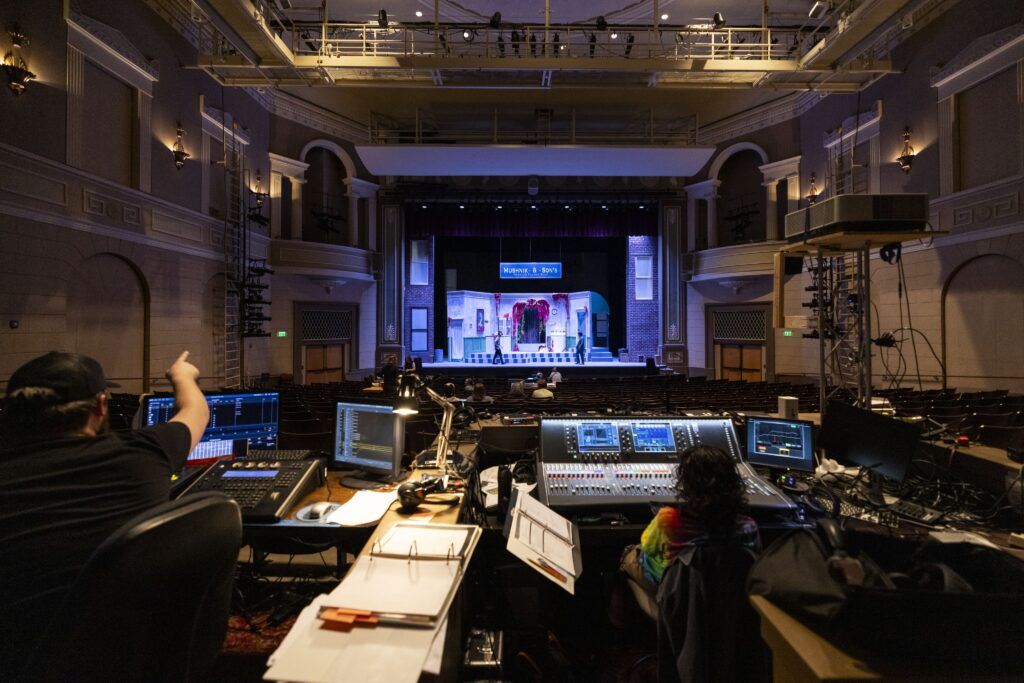
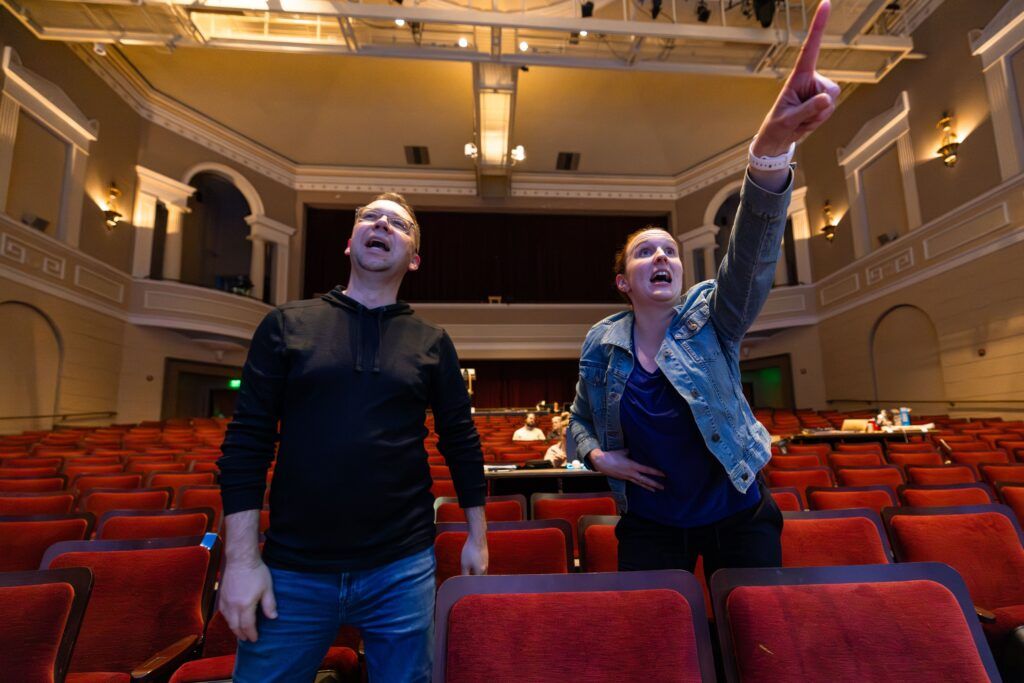
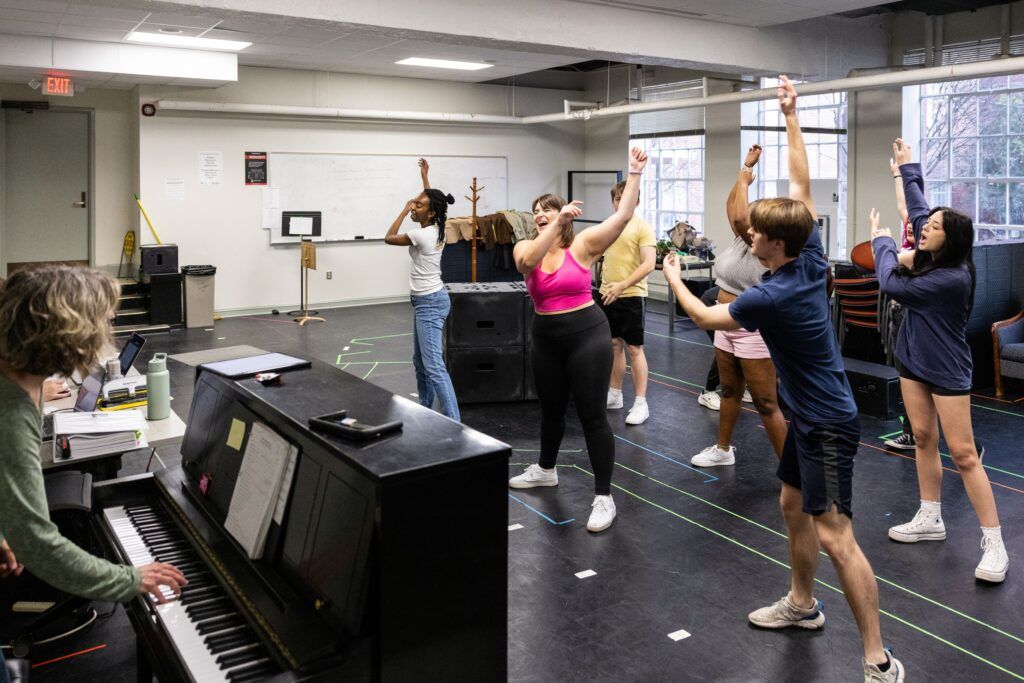
Acting and directing
While much of the design is led by MFA students, the cast is led by undergraduates.
Brie Hayes, a fourth-year transfer student from Augusta, is playing Audrey. Alex Bass, a second-year student, plays Seymour. Costumed and waiting to have their photos taken, they fully inhabit their characters. “The theater program has exceeded my expectations,” Hayes said.
Fourth-year student Garrett McCord is playing the dentist, Orin. He started at UGA in pre-med, but after performing as Jack in an Athens’ Town and Gown production of “Into the Woods,” he decided to make a change and is now earning an A.B. in theatre with a musical theatre certificate. The thing he likes best about UGA’s program is the openness to new techniques. “Each professor is really good at meeting you where you are and giving you tools that you can use as an artist, rather than proscribing to a certain doctrine. They’re helping us build our own fortress, our own house.”

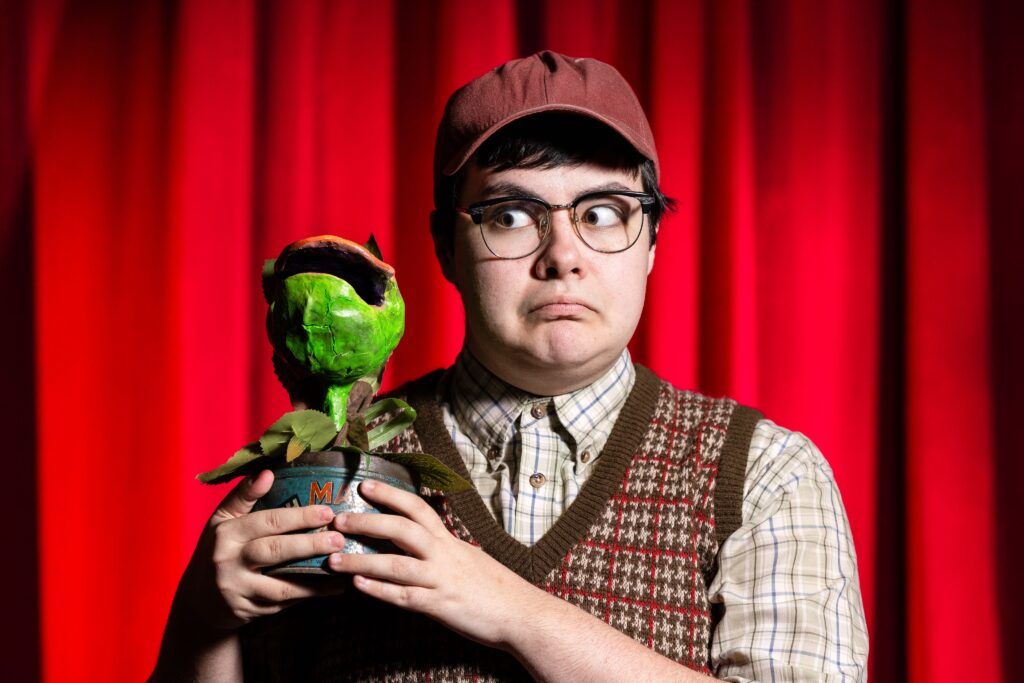
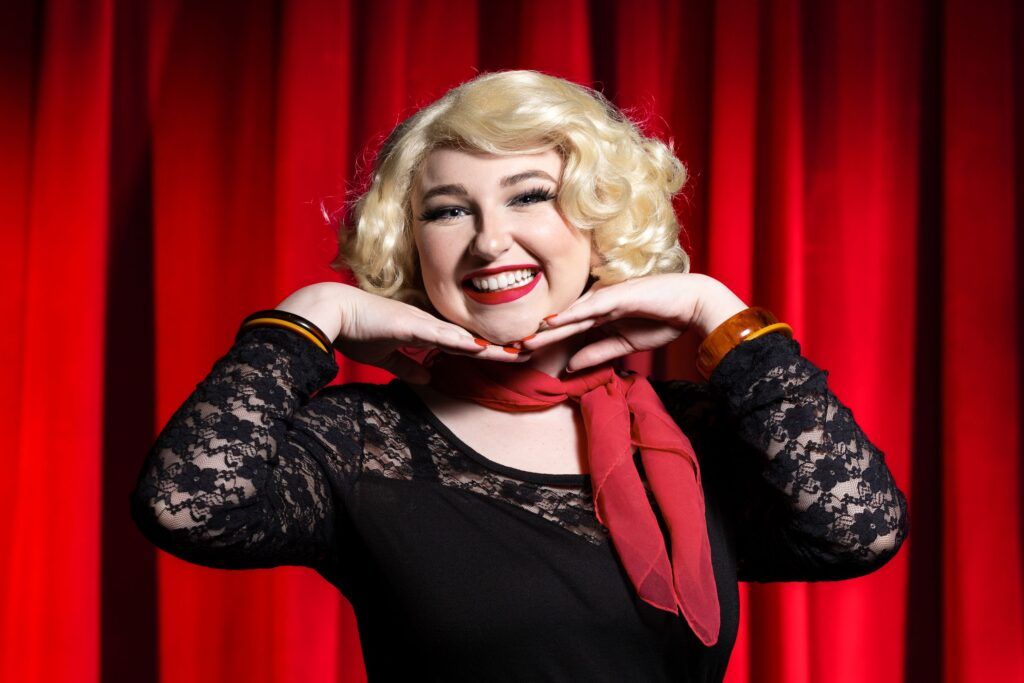
As assistant director, first-year student Abby McWethy is getting a lot of opportunities to hone her artistic skills during this production. When she heard the theater department was putting on “Little Shop,” she reached out to director Daniel Ellis asking to shadow him. Ellis is an Academic Professional in Opera and Theatre in the Franklin College of Arts and Sciences Hugh Hodgson School of Music. She sent him her resume, which included her stage management and assistant directing experience from high school plays and community theater. To her surprise, he asked her to be assistant director.
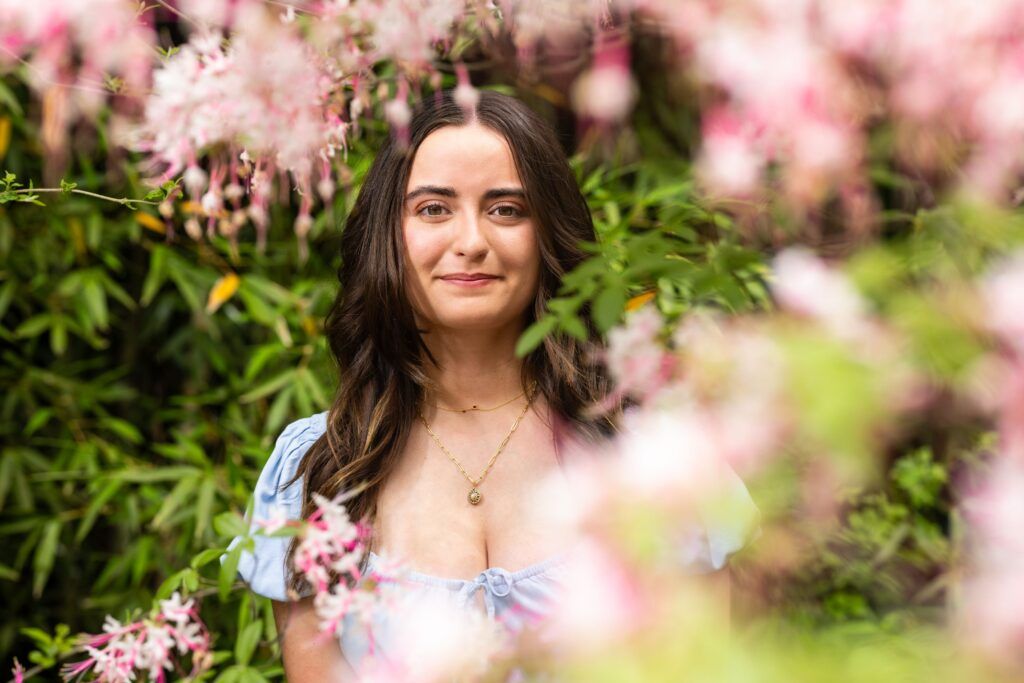
McWethy has known she wanted to direct since fifth grade when she played Young Belle in a community production of “A Christmas Carol.”
“I was like a little chihuahua. I followed the director around asking him questions like, ‘Why did that happen?’ and ‘How are you doing this?’ I didn’t know how to verbalize that I wanted to direct, but the most interesting part of theater to me was always putting all of the puzzle pieces together.”
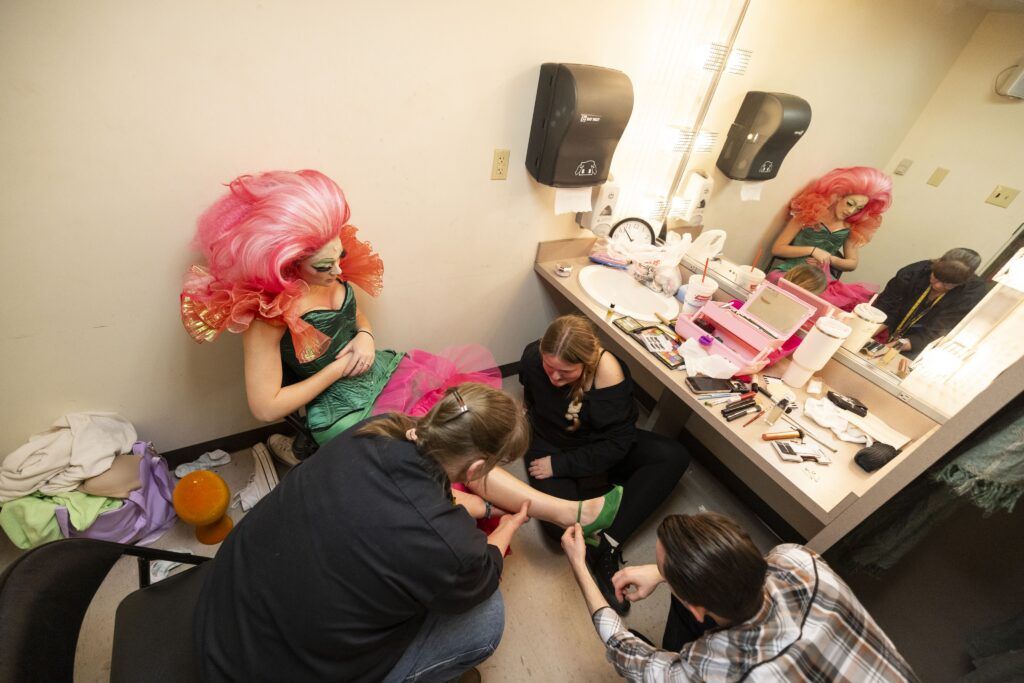
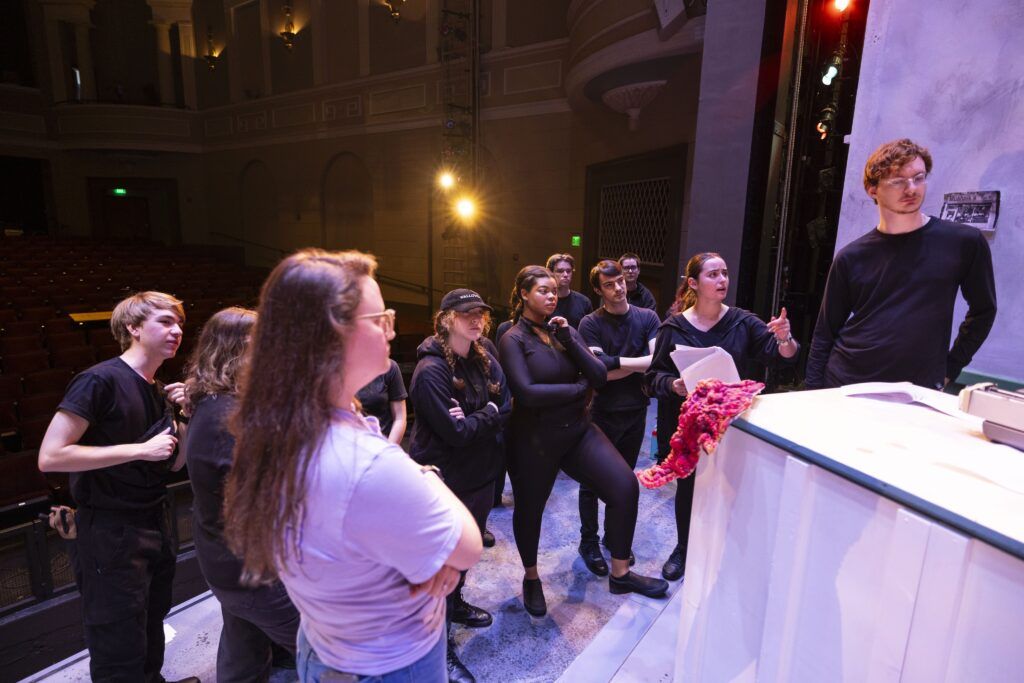
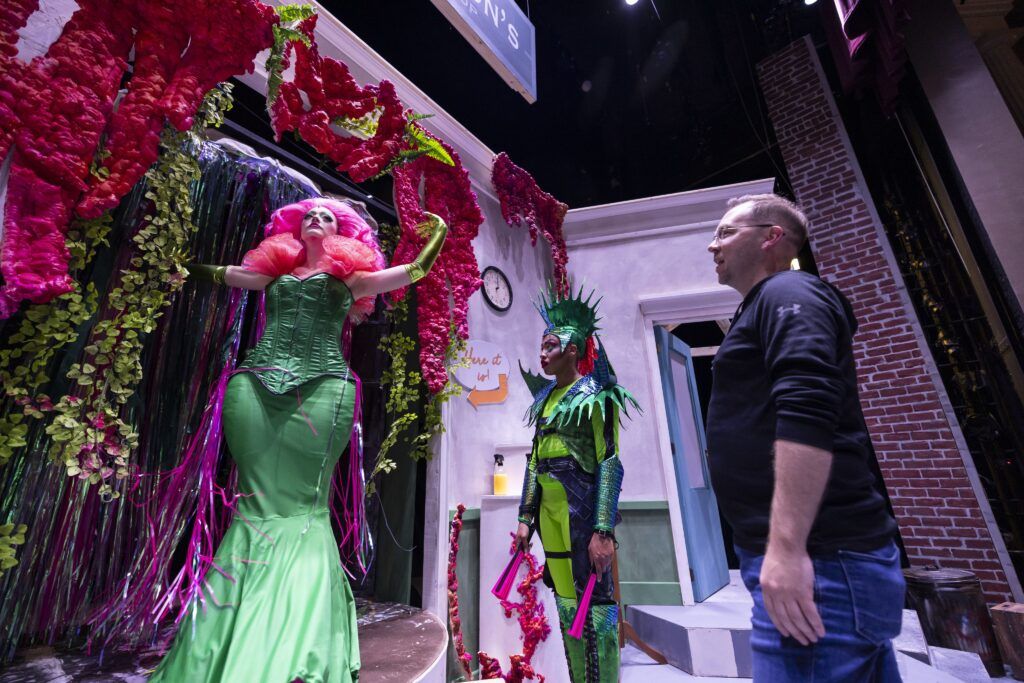
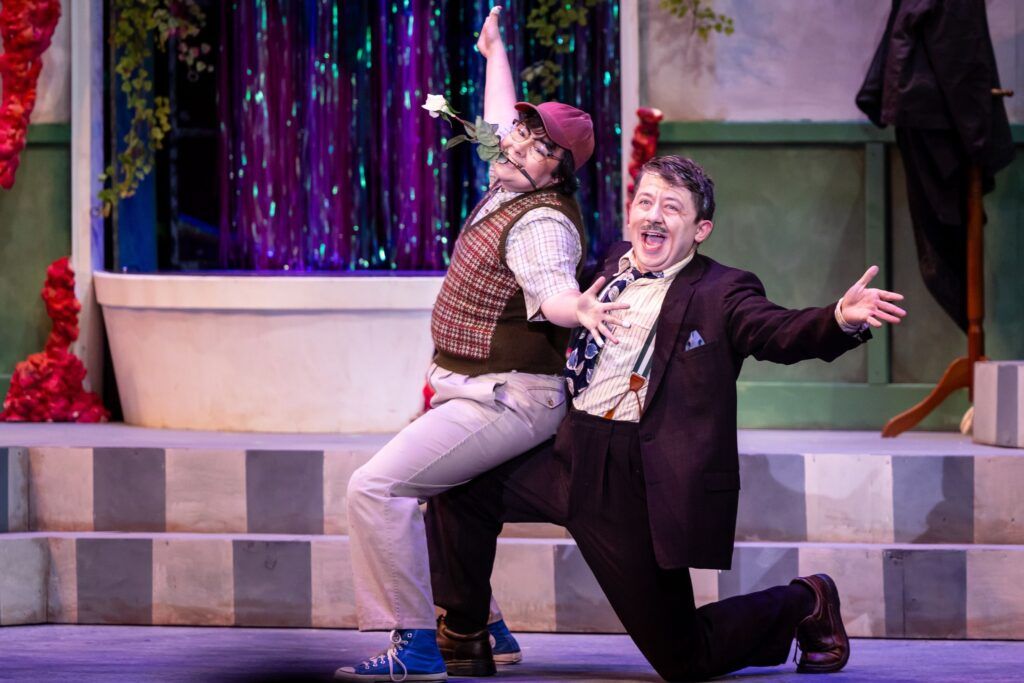
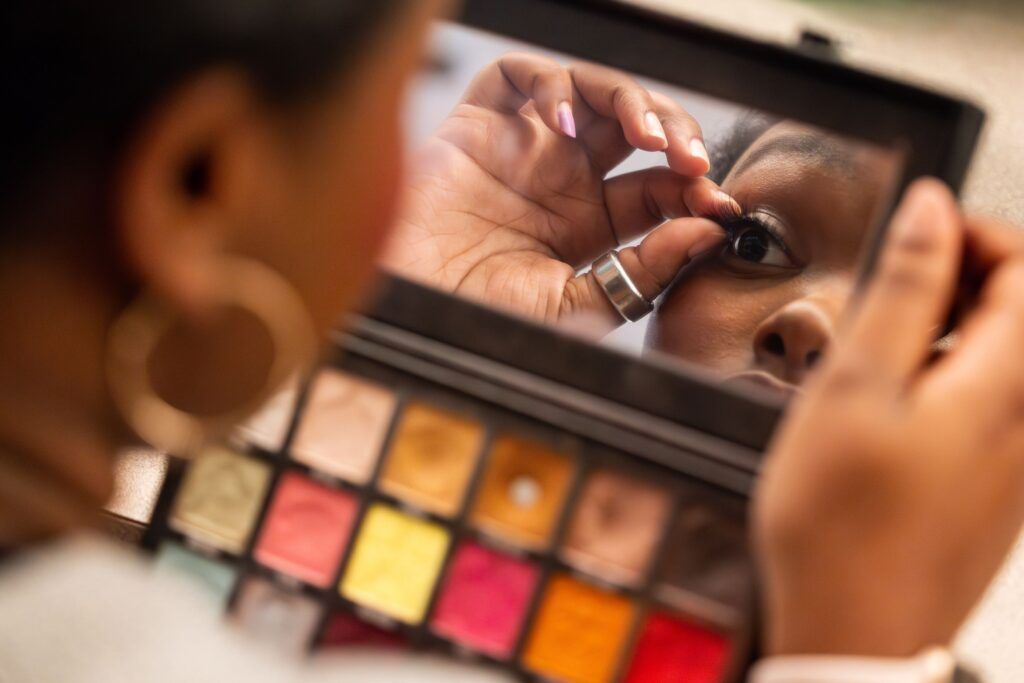
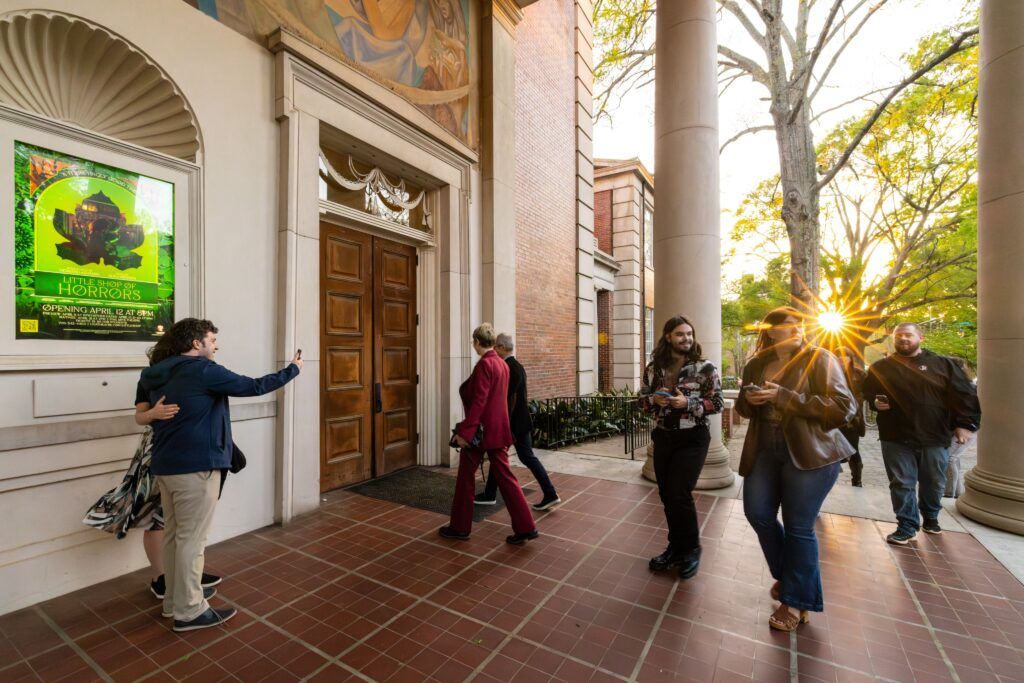
By the time she arrived at UGA, McWethy had already been involved in about 30 plays in several different roles. For “Little Shop” she gets to work a bit with stage management, keeps a blocking book, takes notes during production meetings and does anything else that’s needed.
“It’s so cool getting to see theater on this high of a level,” she said. “I acted in ‘Silent Sky’ last semester and now I’m getting to see the other side of things.”
She’d like to double major in entertainment media studies so she can learn more about film. After that, she plans to attend graduate school for directing. “I’d love to possibly have my own theater one day. There is so much to explore here at UGA, and I want to make sure I take advantage of every opportunity.”
Written by: Heather Skyler
Photography by: Chamberlain Smith
Design by: Andrea Piazza
